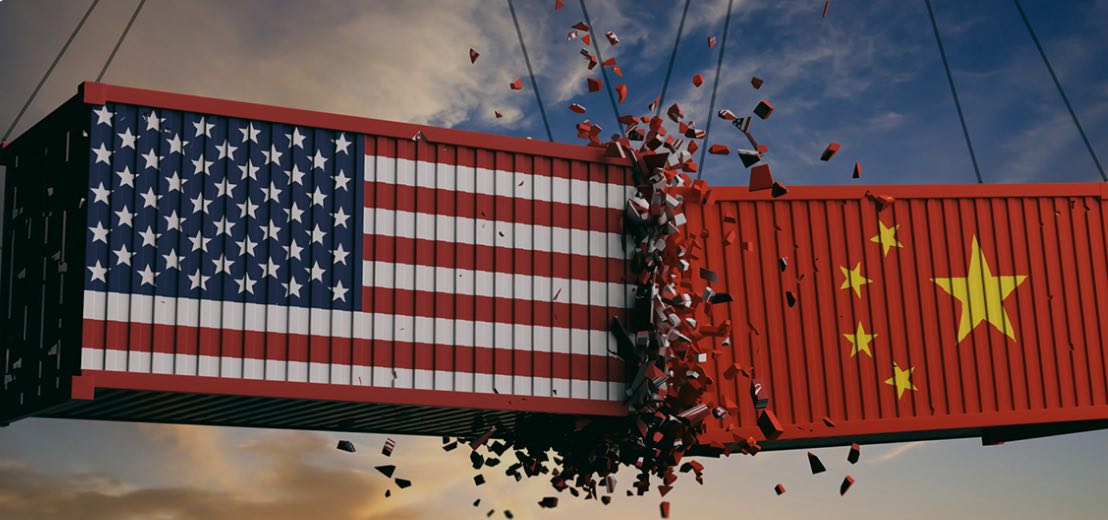America’s Short Wall Against China
America’s Short Wall Against China
Despite Joe Biden abandoning Afghanistan, his administration has performed well in garnering support for Ukraine, strengthening U.S. defense alliances in the Pacific, and assisting Israel in responding to the Hamas terrorist attack.
However, there is a gap in Biden’s foreign policy that has been created by protectionist economic policies.
At the heart of the Biden administration’s foreign policy is the belief that although the United States has many dynamic resources—deep private and public capital markets, relatively lenient legal immigration policies, world-class universities, strong Chapter 11 bankruptcy protections, and a uniquely creative and skilled workforce—businesses in America cannot thrive domestically or internationally unless the government funds them and shields them from competitors.
The implications of this fundamental misconception are both geopolitical and economic. Biden failed to reaffirm the United States’ accession to the Trans-Pacific Partnership, a trade agreement with 12 dynamic Asian countries signed by former President Barack Obama but rejected by Trump.
Instead, Biden offered a hollow substitute in the Indo-Pacific Economic Framework, a vague pact that the White House has readily admitted is not a trade agreement. The administration is passing up the opportunity to reduce tariffs and enhance labor and environmental standards on imports, thereby directly benefiting China. In 2021, China applied to join the TPP in place of the United States.
Biden’s Buy American restrictions have emphasized supply chains, penalizing foreign companies like Samsung and Toyota that have created numerous jobs in the U.S., and have soured allies that the U.S. will need in future conflicts with China.
Biden has maintained Trump-era tariffs, which even he described as a failure. The Global South is eager for trade and international investment, but Biden’s team is ceding these trade opportunities to Chinese businesses.
This not only misses out on mutually beneficial economic opportunities but also gives developing countries little reason to support the U.S., especially when Washington is seeking help for Ukraine and Israel.
Biden’s continued foreign policy stance prevents the U.S. from achieving an economy that can match or surpass China’s, especially as Beijing deepens its ties with Moscow and Tehran.
The guiding principle of U.S. policy towards China should be to compel or encourage it to become a responsible economic and geopolitical stakeholder, playing by international rules.
The Biden administration has supported a ‘small yard, high fence’ approach to prevent China from accessing critical technologies like advanced semiconductors, protecting a limited number of technologies, but applying severe secondary sanction threats against both adversaries and allies alike.
Restricting sales to China risks alienating allies who share U.S. security goals, invest in American companies, purchase large amounts of U.S. products, and boast advanced companies that American firms rely on for technological innovation and manufacturing capacity.
For example, unilateral restrictions on chip-making tools and telling allies to follow the U.S. strategy were met with objections both in The Hague and Tokyo.
America’s allies are seeking an economic strategy that helps them reduce reliance on China.
Washington should have long ago tightened U.S. financial restrictions on China’s military technologies and reduced reliance on Chinese products in critical areas like pharmaceuticals.
However, a better approach to China also offers trade benefits to allied countries in the form of an economic NATO, asking allied governments to prevent companies from entering markets that China’s economic warfare restricts and to increase public demand for products that China penalizes. The U.S. should also grant more licenses to friendly countries to produce critical products for U.S. defense industries.
In a Chicago Council on Global Affairs survey in September 2023, nearly 74% of Americans believed that trade is beneficial for the U.S. economy, almost the highest level in history. About 80% believed it is good for their standard of living, and 63% believed it is good for job creation. In a Reagan Institute survey in July 2023, nearly 58% of respondents believed that negotiating favorable trade agreements should be a foreign policy priority, and 62% of Republican respondents supported signing a trade agreement with Asian countries if told it was designed to counter China’s economic power.
The problem with the U.S. strategy towards globalization over the past 20 years wasn’t that Washington allowed too much freedom in trade, but that it allowed trade that didn’t create reciprocity or a level playing field where American companies could compete with foreign counterparts.
Primarily, the U.S. trade deficit with China from 2001 to the end of that decade, when China was admitted to the World Trade Organization, cost the United States 3.7 million jobs. Three-quarters of these lost jobs, 2.8 million, were in manufacturing.
After Washington allowed Beijing to benefit from free trade without enforcing rules, the consequences of unequal trade with China affected all areas of the U.S. federal landscape.
China maintained industrial subsidies, stole intellectual property, forced companies into joint ventures, and restricted access to its market—methods that continue to this day.
In addition to imposing more restrictions on China, the United States should engage in more meaningful trade negotiations with Indonesia, the Philippines, Switzerland, Taiwan, and the United Kingdom. Washington’s current lack of a robust economic action plan overly militarizes the U.S. strategy.
Allies do not want a war with China nor a moral crusade against tyranny. They want an economic strategy that helps them reduce reliance on China and remain successful.
Good and innovative trade policy can not only create a larger playing field—a larger group of countries adhering to fair rules and norms—but also build taller walls by encouraging more voluntary cooperation against China and others when the Chinese do not play fair.

